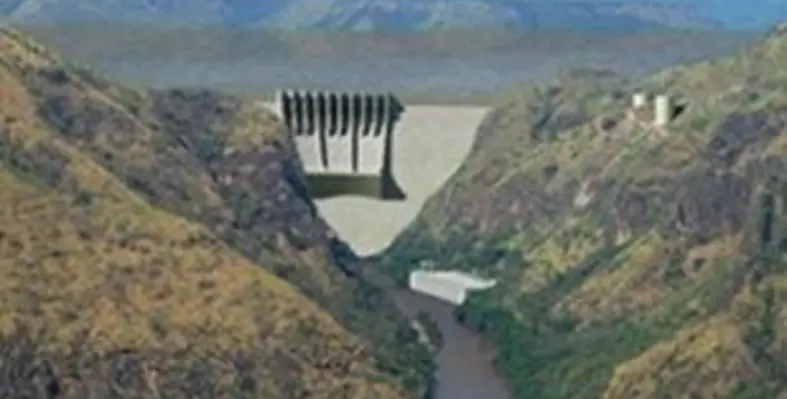The World Bank has approved the funding for a major transmission line that would link Kenya to the Gilgel Gibe III dam site in southern Ethiopia
Ethiopia will receive US$243 million and Kenya $441 million for the project which it is hoped will boost electricity and economic growth in the region.
The move came despite local and international human rights and environmental groups campaigning for the bank to avoid such a move.
The World Bank, along with the African Development Bank and the European Investment Bank, had previously refused to fund the Gibe III dam itself, citing a lack of transparency.
The project still went ahead, however, due to funds from the Industrial and Commercial Bank of China.
"For us, the World Bank's double standards are unacceptable," Ikal Angelei, from Friends of Lake Turkana, a group of local communities that would be affected by the dam, was quoted as saying by the Inter Press Service.
"If the dam did not meet standards earlier, how can they fund what is produced by the dam?"
The World Bank has also been accused of ignoring environmental concerns surrounding Gibe III.
Construction of the dam has been under way since 2006 and is approximately half complete.
The dam, which is on the Omo River, could be completed by 2014 and the transmission line running by 2018.
At 240 metres, the dam will be Africa's highest and the installation should produce around 1,870MW of electricity.
This would increase Ethiopia's production capacity to such an extent that the country will have a surplus of energy, making the 1,000km transmission line a vital important component of Gibe III.
When Ethiopia completes the power transmission line, it plans to sell 400MW of hydro-power generated electricity to Kenya by 2016 and also plans to export power to South Sudan, Tanzania, Somalia, and Yemen.
"This landmark transformational project will change the fundamentals of the power sector in East Africa,” Makhtar Diop, World Bank vice president for the Africa region was quoted as saying by the Sudan Tribune.
“It will expand access and lower the cost of electricity supply to homes and businesses across Kenya and help to reduce thermal power emissions in Kenya, a clear benefit to the region’s environment.”
Despite the project’s potential to bring affordable power to large areas of East Africa, the social and environmental impacts of Gibe III have been highlighted by many.
Last year, the Kenyan Parliament passed a resolution urging the government to demand that the project be suspended until these concerns had been addressed.
Furthermore, the UN's World Heritage Committee requested that Ethiopia should “immediately halt all construction on the Gibe III dam" due to fears about the impact of the dam on Lake Turkana. The lake is surrounded by lands protected as World Heritage sites.
There are also concerns that the economies of nearby tribal communities could collapse, threatening up to 200,000 people, due to the dam’s affect on the Omo River's seasonal flooding.
In a collective release, five international civil society groups warned that the bank is "lowering its standards" by backing the transmission project without first addressing the criticism surrounding Gibe III.
Italian company, Salini Costruttori, which is overseeing the construction of the dam, responded to the allegations by releasing a statement directed at the groups.
“They are not in possession of adequate information or adequate competences to assess them,” the statement read. “On some occasions, this has led to a flow of inappropriate news, assessments and initiatives.”
READ MORE
Full statement from Salini Costruttori
Ethiopia to increase electrical supply from geothermal power sources
Africa's construction projects get bigger














